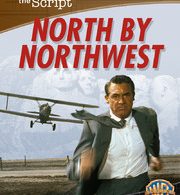I had two extremely annoying reading experiences recently and it brought to mind a question I’ve had for a while so I thought I’d seek outside opinions.
Here’s what happened, with two books in a row. I was reading the first ARC while using the accompanying press release as a bookmark. I hadn’t read the release because I’m so spoiler averse, I rarely read synopses, except to maybe skim the first sentence and the last to get a very rough idea of plot.
At one point I put the book down to grab a snack, a vital part of my reading ritual. When I inserted the press release into the book to keep my place, I accidentally glanced at the first sentence at the top of the page.
 It mentioned the death of a character. In bold. I was on p. 52, the death hadn’t occurred, and it wasn’t something I was anticipating. I was super annoyed by the spoiler and haven’t picked up the book again.
It mentioned the death of a character. In bold. I was on p. 52, the death hadn’t occurred, and it wasn’t something I was anticipating. I was super annoyed by the spoiler and haven’t picked up the book again.
The next ARC I read, I made sure to not use the press release as bookmark. But like the other book, I dove in without knowing anything about the plot. When I took a break, I put the book front cover down.
And that’s when I saw the synopsis on the back—with the very first sentence IN BIG FONT mentioning the death of a character I’d thought would be the protagonist. I was on p. 35 and the death hadn’t occurred.
Why are spoilers being given away so freely?? In press materials, no less. As I asked myself this, the obvious answer was: Because other people don’t think these are spoilers.
Which brought me to this question: When does a plot point become a spoiler if revealed? To me, if something happens before p. 5—maybe p. 8—it’s OK to mention it in a release or review. If a major development happens after that, best to keep mum or be vague when addressing it.
Not everyone agrees with me, though. Some reviewers have told me anything that happens before p. 30 is not a spoiler. Some people say p. 50 is their cut-off mark.
What do you think? When does something become a spoiler to you?






12 Comments
le0pard13
May 15, 2015 at 6:25 amIf it spoiled something for you, as a reader, it’s a spoiler. Plain and simple. I don’t care what page you’re on. Who came up with such number? Inane. Currently, my son is not watching ANY Star Wars VII trailer to avoid even the chance — he even ran out of the Age of Ultron screening for a brief bit when it came up as the last trailer before the movie. Got to respect that.
Pop Culture Nerd
May 15, 2015 at 8:51 amYour son and I are the same! I have not seen any of the SW trailers. And when we went to see AVENGERS, I said to Mr. PCN, “I hope they don’t run the SW trailer because I’ll have to leave.” Luckily, I was in the restroom when it came on.
I remember what it was like when I was a kid, going to see the original SW for the first time, not knowing anything, and then having my mind blown. I know it’s impossible to do that now, but I’m trying to know as little as possible so I’ll have more to marvel over when I see the movie.
jen forbus
May 15, 2015 at 7:10 amI’m in agreement with Michael. I don’t have a page indicator. I rely more on my sense of what would ruin the story for the reader. I try to give enough of an idea of what the book will be about but avoid any plot twists, red herrings, etc.
That said, I sometimes wonder if my familiarity with the genre distorts things for me. Are there times when I take something for granted that others would not? I hope not, but I’m not always sure.
Pop Culture Nerd
May 15, 2015 at 9:51 amI do that, too—go with my gut. If knowing a certain plot point would spoil it for me, then it’d probably do the same for others. The page-count notion came from reviewing guidelines we both received from somewhere. 🙂
Sometimes I won’t even mention there’s a twist in the story because readers might anticipate it, try to figure out what it is, and when it comes it won’t be a surprise anymore.
Laura Benedict
May 15, 2015 at 9:21 amIf a press release or a book cover announces such a drastic plot point, then the rest of the book better contain a helluva story. The book should be the story of *why*. In that case, I wouldn’t see it as a spoiler. As a writer, I love to give the reader a shock right at the beginning. But if it’s handled clumsily, then boo! Hiss!
Pop Culture Nerd
May 15, 2015 at 2:32 pmI like a good shock at the beginning! But once the book cover tells me right out what the surprise is, I am denied the shock.
In the second book I mentioned above, the story does become a search for a reason. I’m still reading because I want to know why the character died, but am also still grumpy about the spoiler. 🙂
Lauren
May 15, 2015 at 9:48 amI don’t have much to add as I agree with Michael, Jen, and Laura. It just seems to me if you have to add something like that, especially in bold, to promotional materials, it tells me you don’t have much faith in what’s inside. If you can’t hook me without a spoiler, that doesn’t bode well.
Lauren
May 15, 2015 at 9:49 amAlso: Sorry this happened to you (twice). Maddening.
Pop Culture Nerd
May 15, 2015 at 2:41 pmThanks. It was blergh city all around.
Eirego
May 15, 2015 at 10:11 amIf it happens in the first chapter, it’s not a spoiler, but it’s a gray area if the first chapter is over 30 pages.
I stopped reading the backs of books long ago. Most seem to have been written by people who didn’t even read it.
When it comes to spoilers, movie trailers are still the worst though.
le0pard13
May 15, 2015 at 10:17 am“When it comes to spoilers, movie trailers are still the worst though.”
Oh, I so agree!
Pop Culture Nerd
May 15, 2015 at 2:39 pmSpoilers in trailers are horrible! This is why I rarely watch them. But I went to PITCH PERFECT 2 today and couldn’t really escape them (unless I did what le0pard13’s son did and run out of the theater). I’m now pretty sure I don’t need to see most of the movies previewed because the trailers told the whole story.